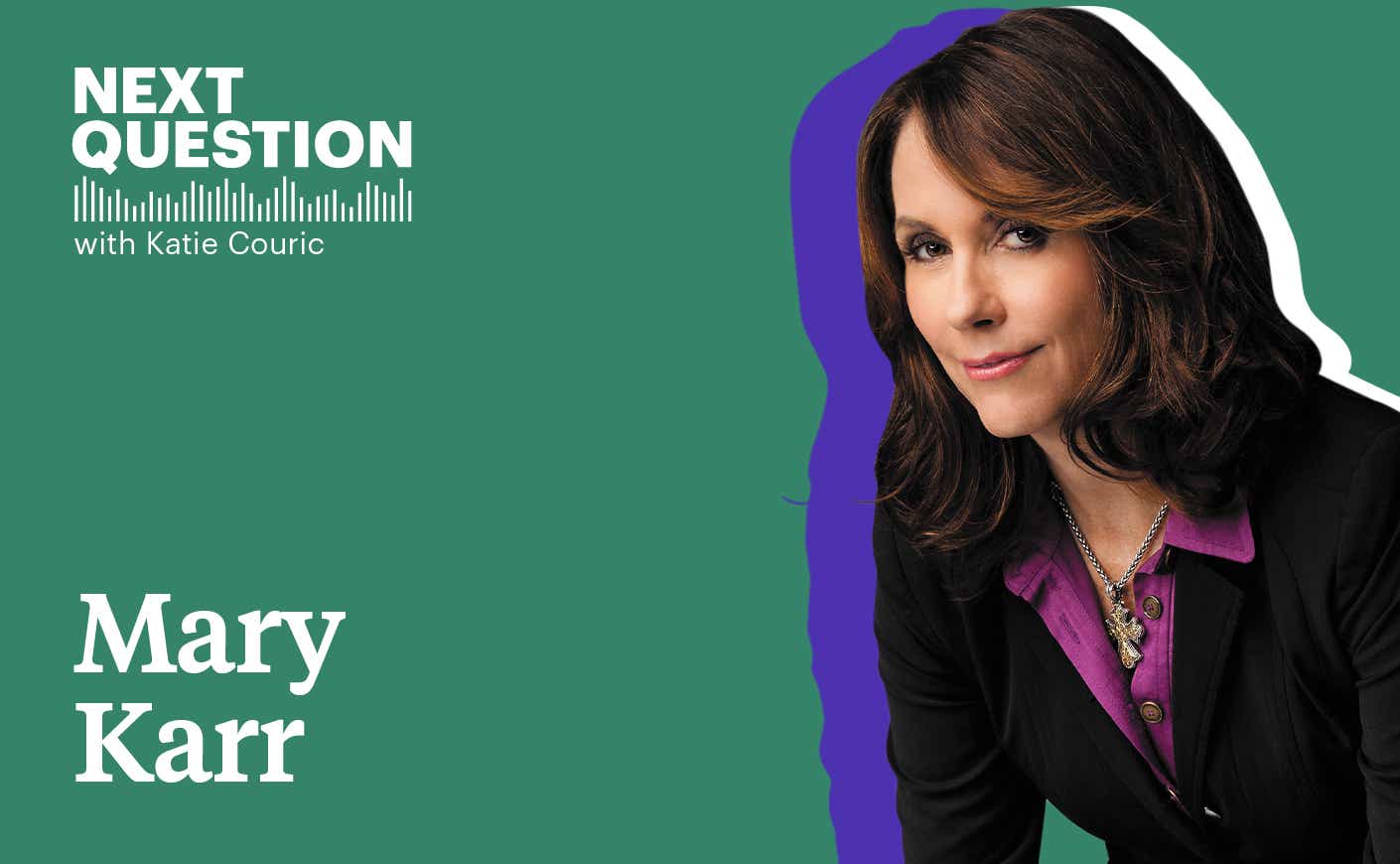In 1995, Mary Karr published her debut memoir, The Liar’s Club, an engrossing, tragicomic telling of her childhood in a poor, industrial East Texas town. The Liar’s Club took the publishing world by storm and inspired a wave of confessional memoirs. Karr then followed it up with Cherry in 2000 and Lit in 2009. She also wrote a how-to book about the genre called The Art of Memoir and is now working on her fourth memoir. Can you blame us for tapping Karr first for the summer series edition of Next Question with Katie Couric? She is the memoir queen.
Oh, and if that weren’t enough, in addition to her memoir career, Karr is also the author of five celebrated volumes of poetry and is a longtime professor of English at Syracuse University.
And on this episode of Next Question with Katie Couric, Karr dives into it all: the writing process, books that impacted her life and career, her faith, aging gracefully (or not), even cherished Winnie-the-Pooh poems, her struggles in her childhood and adulthood, and more. Get a glimpse below.
Karr on being fascinated by memoirs at a very young age
“I started reading them when I was a little girl. I only have one notebook from my childhood and in it when I was 10…I wrote ‘When I grow up, I will write one-half poetry and one-half memoir.’ And then after that, I wrote, ‘I’m not very successful as a little girl, when I grow up, I will probably be a mess.’”
Karr on the earliest memoirs she remembers reading
“I remember Helen Keller’s book. And I remember an excerpt of an abridged version of Lincoln’s [memoir]. When I was in about the 10th grade, I think, or 11th grade, Maya Angelou came out with, I Know Why The Caged Bird Sings…When I read Maya Angelou, who was a black girl, as she would have said, in the Jim Crow South, I was a white girl in the Jim Crow South, who was scorned and beleaguered — we were both sexually assaulted as children. For me, literature was kind of the stuff of white guys, of guys who wore tasseled loafers and use summer as a verb. My mother who had lived in New York and was a painter, kind of a Marxist weirdo painter, who married my daddy, who was a Texas oil worker, she got the New Yorker used from the people at the grocery store who subscribed to it. So this was real literature to me. I mean, these were beautiful singular voices and Angelou doesn’t sound like anyone else.”
For more of their funny and raw conversation, listen to the full episode now.












